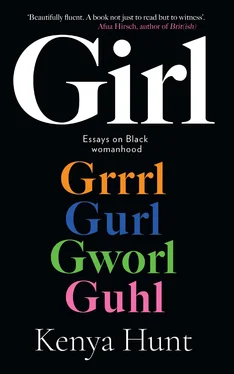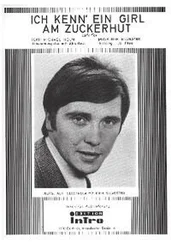Kenya Hunt - GIRL
Здесь есть возможность читать онлайн «Kenya Hunt - GIRL» — ознакомительный отрывок электронной книги совершенно бесплатно, а после прочтения отрывка купить полную версию. В некоторых случаях можно слушать аудио, скачать через торрент в формате fb2 и присутствует краткое содержание. Жанр: unrecognised, на английском языке. Описание произведения, (предисловие) а так же отзывы посетителей доступны на портале библиотеки ЛибКат.
- Название:GIRL
- Автор:
- Жанр:
- Год:неизвестен
- ISBN:нет данных
- Рейтинг книги:5 / 5. Голосов: 1
-
Избранное:Добавить в избранное
- Отзывы:
-
Ваша оценка:
- 100
- 1
- 2
- 3
- 4
- 5
GIRL: краткое содержание, описание и аннотация
Предлагаем к чтению аннотацию, описание, краткое содержание или предисловие (зависит от того, что написал сам автор книги «GIRL»). Если вы не нашли необходимую информацию о книге — напишите в комментариях, мы постараемся отыскать её.
GIRL — читать онлайн ознакомительный отрывок
Ниже представлен текст книги, разбитый по страницам. Система сохранения места последней прочитанной страницы, позволяет с удобством читать онлайн бесплатно книгу «GIRL», без необходимости каждый раз заново искать на чём Вы остановились. Поставьте закладку, и сможете в любой момент перейти на страницу, на которой закончили чтение.
Интервал:
Закладка:
Some people are validation junkies, addicted to the likes and shares, the digital pats on the back. But I get my highs from the hit of underestimation. Give me a ‘meh’ and I’ll make you eat it. Disregard me and I’ll show you. I get a rise out of proving people wrong. During the many interviews I’ve given as a fashion editor about the lack of diversity in the business, people sometimes ask me, ‘What does it feel like to make it in an industry filled with people who don’t look like you?’
It’s being 19 years old and told by a university professor in Charlottesville, Virginia to manage my expectations and try a career in teaching high school when I expressed a desire to move to New York and work in magazine publishing. It’s being told to go back to the drawing board during a staff meeting at my second magazine publishing job in New York, when the editor dismissed my pitch about a story on teenage moms with the nonchalant and wholly inaccurate logic that it ‘was no good because the story would just be about Black girls, and no one wants to read that.’ It’s an editor sitting next to you in the front row during New York Fashion Week and showing you a photo of the African tribeswoman who will be her toddler’s nanny during an extended winter stay at a national reserve in South Africa. It’s to be repeatedly asked to go on television to comment about why there are so few of you in media, television and fashion, as if it’s the only subject you’re qualified to speak about.
It’s to be seated next to a model agency owner at a work dinner, who tells you you’re pronouncing your name wrong. ‘I know the most luxurious lodge in Keenya. Where do you like to stay when you’re there? Surely you’ve been to the country before, no? Not even Nairobi? Then why did your parents name you Keenya? You pronounce it “Kehn-ya” you say? Not “Keenya”? Hmmmm, are you sure?’ It’s to restrain yourself from using the other kind of ‘girl’—’Girl!’ — as admonishment and verbal eye roll. The kind of ‘girl’ I use for women who test my patience, no matter what their race. As in, ‘Girl, stop! Old white colonialists pronounce it this way.’ It’s to sit in a staff meeting and suggest a Black pop star for the cover only to be told, ‘But we just had a Black woman on the cover last month. And it would be too weird to have two in a row.’
But that was then. And this is now, the age of Black Girl Magic in which we’re owning the expansiveness of Blackness at its cross-section with womanhood, tracing its myriad shapes and textures, during a time when what it means to be a Black woman has permeated every level of public discourse from the unbelievably tragic (Sandra Bland, Breonna Taylor, Atatiana Jefferson, and a tragically long list of others) to the tragi-comical (Rachel Dolezal).
What and who is Black Girl Magic? She’s Solange Knowles dressed in white, dancing on the streets of New Orleans. It’s my favourite photo of Malia and Sasha Obama, with girlfriends, trailing behind their dad, as they deplane Air Force One. It’s Black Lives Matter founders Patrisse Khan-Cullors, Alicia Garza and Opal Tometi galvanising a global movement against the brutalisation of Black bodies. And Bernardine Evaristo winning the Booker Prize, the first Black British author to do so. It’s Chimamanda Ngozi Adichie interviewing Michelle Obama about her record-breaking book in front of a sold-out theatre in London. And a video clip of Michelle Obama congratulating Beyoncé on her record-breaking Netflix special, Homecoming — a rich, rousing, and very Black, tribute to historically Black universities. It’s nineteen Black women being elected to judgeships in Texas, a longstanding conservative state, during the American midterm elections. And five Black women, their backgrounds spanning South Africa, Jamaica and America, winning the world’s five most iconic beauty pageants, Miss America, Miss USA, Miss Teen USA, Miss World and Miss Universe. It’s Black actresses, singers and models dominating UK and US women’s magazines for the first time in history, in September 2018. And South African two-time Olympic 800m champion Caster Semenya declaring herself ‘supernatural’ as she sought to qualify for the Tokyo Olympics. It’s Kamala Harris running for President. And all of us avowing our solidarity in the face of global pandemics and tragedy. Women, girls, daring to be true to the gradations of ourselves in a world where anyone not named Beyoncé, Rihanna or Lupita tends to get depicted as chronically angry, perennially overlooked, forever victimised, unfailingly ratchet, and more. That’s not how I view myself. That’s not how anyone I know views themselves.
The world expects the more familiar, stereotypical image of us as the server of side eyes and roller of necks. But Black Girl Magic is a celebration that frees us from the confines of narrow expectation or subtext.
Girl!
I began hearing the call-out beyond my network of Black girlfriends. ‘Girl,’ Kim Tatum said, greeting fellow trans activist Rhyannon Styles during a podcast episode I hosted during my time as an editor at British ELLE. We were discussing what it meant to be trans, an idea that had entered the mainstream for the first time through global headline makers such as Orange Is the New Black star Laverne Cox and writer Janet Mock.
‘Damn, girl, you look fabulous,’ an Instagram post by the body positivity activist BodyPosiPanda read, inviting women to embrace their most authentic, unfiltered selves and learn to love the back fat, stretch marks and acne scars.
‘I’ve got your back, girl,’ I overheard a middle aged white saleswoman say to her co-worker, hair streaked with grey, as she fixed a frozen cash register during a shopping trip.
In a way, the word had become a positive affirmation and a vocal show of unity in our age of outrage. Yet there is little written about its use in this way.
I’ve watched ‘girl’ come full circle, just as my relationship with it has. I now openly use it to show sisterly affection, shared cultural experiences or not — as do many Londoners I know. When I checked in on a pregnant friend in south London who had birthed a baby boy after three days of labour, her reply, a single word sent via text, spoke volumes about joy, exhaustion, relief and perseverance: ‘Girl…’
She didn’t need to say anything more.
At a women’s festival at the Saatchi Gallery where I appeared as a speaker, the green room was a joyous din of loud laughter, chatty group hugs and enthusiastic ‘hey girls’ between authors, journalists, models, activists and athletes. On stage, I asked Halima Aden, the Kenyan-born woman who made history as the world’s first hijabi supermodel, if she ever felt a weight of responsibility as A First. ‘Well, girl, when you put it that way,’ she laughed before admitting she does.
Here, ‘girl’ wasn’t tied to any specific country of origin. Just as it wasn’t during the London Women’s March months later where protestors of all ethnicities and ages walked with placards featuring such ballsy messages as ‘Girls just want to have fun-damental human rights’ and ‘Girls doing whatever the fuck they want.’
Girls! Girl. Gurl. Girl, hey. Girl, bye. Girl, stop. Girl, go. Girl, we see you, and feel seen.
2 Notes on Woke
‘Precisely at the point when you begin to develop a conscience you must find yourself at war with your society.’
– BALDWIN
Few things in the Internet age have not been named. And many things, even if they have been named, have been rechristened, and rebranded again and again.
Healthy food, sleep and exercise combined to become ‘wellness’ and ‘clean living’. Down-time became ‘self-care’. Role models were repackaged, simply, as ‘Goals’ (with a capital G). And goals (lower case ‘g’) in the traditional sense became ‘intentions’. The practice of making those goals happen, meanwhile, is now called ‘manifestation’.
Читать дальшеИнтервал:
Закладка:
Похожие книги на «GIRL»
Представляем Вашему вниманию похожие книги на «GIRL» списком для выбора. Мы отобрали схожую по названию и смыслу литературу в надежде предоставить читателям больше вариантов отыскать новые, интересные, ещё непрочитанные произведения.
Обсуждение, отзывы о книге «GIRL» и просто собственные мнения читателей. Оставьте ваши комментарии, напишите, что Вы думаете о произведении, его смысле или главных героях. Укажите что конкретно понравилось, а что нет, и почему Вы так считаете.












